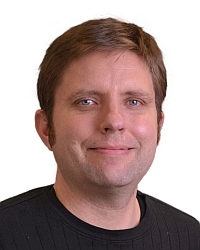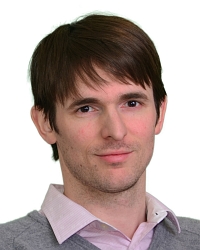TR2020-111
Bootstrapping Unsupervised Deep Music Separation from Primitive Auditory Grouping Principles
-
- , "Bootstrapping Unsupervised Deep Music Separation from Primitive Auditory Grouping Principles", ICML 2020 Workshop on Self-supervision in Audio and Speech, July 2020.BibTeX TR2020-111 PDF
- @inproceedings{Seetharaman2020jul,
- author = {Seetharaman, Prem and Wichern, Gordon and {Le Roux}, Jonathan and Pardo, Bryan},
- title = {{Bootstrapping Unsupervised Deep Music Separation from Primitive Auditory Grouping Principles}},
- booktitle = {ICML 2020 Workshop on Self-supervision in Audio and Speech},
- year = 2020,
- month = jul,
- url = {https://www.merl.com/publications/TR2020-111}
- }
- , "Bootstrapping Unsupervised Deep Music Separation from Primitive Auditory Grouping Principles", ICML 2020 Workshop on Self-supervision in Audio and Speech, July 2020.
-
MERL Contacts:
-
Research Areas:
Abstract:
Separating an audio scene, such as a cocktail party with multiple overlapping voices, into meaningful components (e.g., individual voices) is a core task in computer audition, analogous to image segmentation in computer vision. Deep networks are the state-of-the-art approach. They are typically trained on synthetic audio mixtures made from isolated sound source recordings so that ground truth for the separation is known. However, the vast majority of available audio is not isolated. The human brain performs an initial segmentation of the audio scene using primitive cues that are broadly applicable to many kinds of sound sources. We present a method to train a deep source separation model in an unsupervised way by bootstrapping using multiple primitive cues. We apply our method to train a network on a large set of unlabeled music recordings to separate vocals from accompaniment without the need for ground truth isolated sources or artificial training mixtures. A companion notebook with audio examples and code for experiments is available.
Related News & Events
-
NEWS Jonathan Le Roux gives invited talk at CMU's Language Technology Institute Colloquium Date: December 9, 2022
Where: Pittsburg, PA
MERL Contact: Jonathan Le Roux
Research Areas: Artificial Intelligence, Machine Learning, Speech & AudioBrief- MERL Senior Principal Research Scientist and Speech and Audio Senior Team Leader, Jonathan Le Roux, was invited by Carnegie Mellon University's Language Technology Institute (LTI) to give an invited talk as part of the LTI Colloquium Series. The LTI Colloquium is a prestigious series of talks given by experts from across the country related to different areas of language technologies. Jonathan's talk, entitled "Towards general and flexible audio source separation", presented an overview of techniques developed at MERL towards the goal of robustly and flexibly decomposing and analyzing an acoustic scene, describing in particular the Speech and Audio Team's efforts to extend MERL's early speech separation and enhancement methods to more challenging environments, and to more general and less supervised scenarios.

